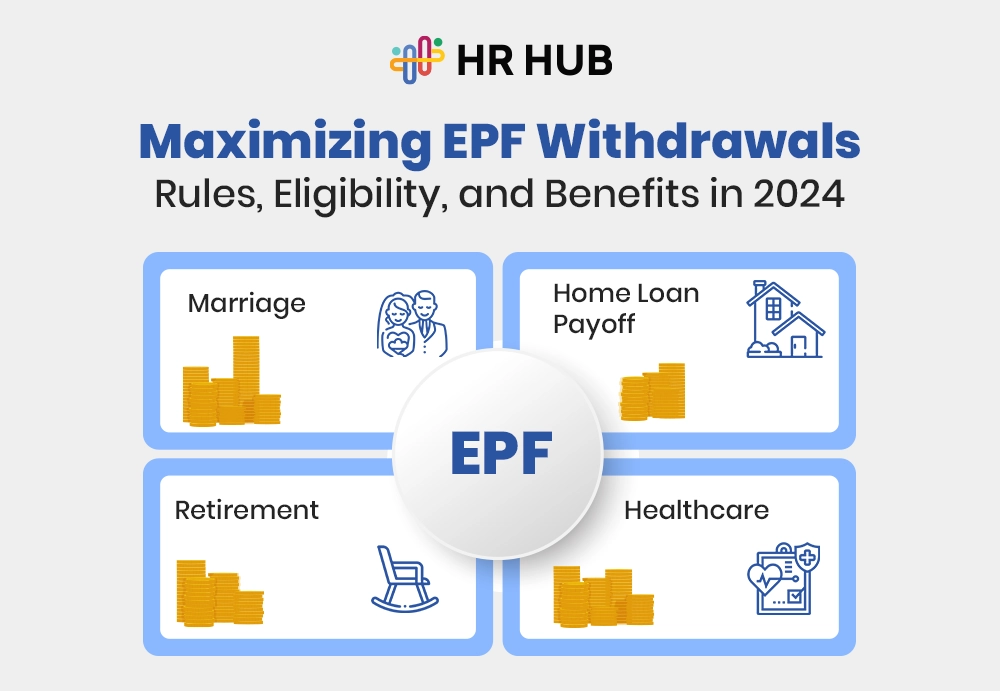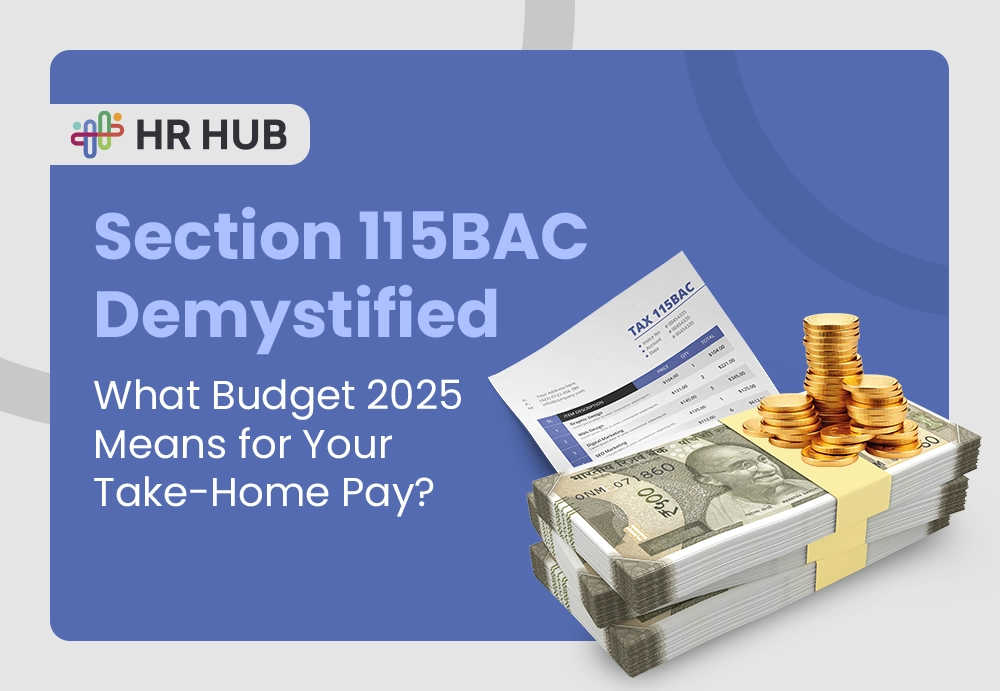Recently, job ghosting has become an increasingly prevalent phenomenon in recruitment cycles. Indeed's recent survey says that 4,516 job seekers admit to ghosting employers, and 4,517 employers have been ghosted across the US, UK, and Canada.
Job ghosting occurs when a candidate 'blacks out' without explanation and just disappears; this can be after failing to attend interviews or even on the first day of work.
This blog deepens the reasons behind this trend, touches on its impact on employers, and discusses how organizations can mitigate such impact.
What is Job Ghosting?
Job ghosting occurs when a job candidate withdraws from the recruitment process without notice.
Three scenarios are possible in this context:
- The candidate stops responding to communications.
- The candidate vanishes after some interviews.
- The candidate disappears after agreeing to join the organization on an offered date.
The above behavior impacts the recruitment process at multiple stages, from initial communication to the period after an offer.
It may be due to a lack of interest, another better offer elsewhere, or transparency or empathy from the employer's end.
7 Key Reasons Why Job Ghosting is Rising
Let’s highlight the 7 best reasons for the rising impact of job ghosting in the organization.
1. Oversaturation of Job Opportunities
It is a fierce job market, but it's no less so for the employers competing for talent in that busy space. Remote work and globalization have opened up job search horizons so candidates can apply outside their local market.
With numerous offers flooding their inboxes, some candidates find it easier to cut off communication with less appealing companies rather than politely decline.
2. Poor Employer Communication
In such scenarios, the applicant would surely be disappointed due to delayed recruitment and automated or impersonal responses. An employer should understand that a lack of quick yet crystal-clear communication may cause the candidate to lose himself or herself.
In a time when the market is usually fast-paced about jobs, candidates expect more rapid feedback loops and transparency as to their status.
3. Unclear Job Descriptions
One of the main contributors to ghosting is vague or inaccurate job descriptions. Any moment the candidates realize the job they're applying for differs from what was advertised in the job description, they might drop the process altogether. Many recruiters oversell a position or fail to indicate critical responsibilities; therefore, the candidate disengages.
4. Negative Workplace Reputation
Candidates can gather immediate information on the company's workplace culture through employer review sites such as Glassdoor. Consider a few negative reviews regarding management style, work-life balance, or employee treatment. This may deter candidates from advancing further in the hiring process.
A candidate may start the interview process all enthusiasm that can flare out quickly, poof-gone without explanation when they come across some information about the company.
5. Higher Expectations from Candidates
The current job applicant is the most demanding ever. They want a job that will pay the bills and enrich their lives with more flexibility, meaningful work, and personal growth. If they feel that the job doesn't fit in and belongs with some other wider value or long-term goal, they might take their leave without saying a word to anybody.
6. Mental Health Awareness
There is a growing interest in mental health and work-life balance. In this recruitment process, candidates must pay more attention to their well-being. If the recruitment process proves overly stressful or the candidates are under pressure, they would likely leave it abruptly. Ghosting could be a mode of escape from stressful or uncomfortable confrontations.
7. Competing Offers and Time Constraints
Today, candidates can easily balance offers in almost as many jobs as candidates, especially when they find themselves in sectors presently in high demand for talent.
Since they have limited time and energy, some candidates also drop out of the processes of less-preferred employers without an explanation and put their effort into getting their first choice.
Understanding the Key Impacts on Employers
The rise of job ghosting doesn't just leave candidates without jobs; it also creates significant problems for employers. Here are some of the key impacts:
1. Wasted Resources
Recruitment is seen as one of the most time-consuming and expensive processes. Employers invest many resources in sourcing, interviewing, and onboarding candidates. The hours spent ghosting candidates represent a tremendous financial loss in the cost of placing ads, paying recruiters, and dedicating time to interviews.
For example, a small business took weeks to review the resumes and interview several candidates, only for the final choice to walk out on the company just before it started. This wasted some precious time and forced the company to repeat the entire hiring process.
2. Prolonged Vacancies
Ghosting candidates waste positions. When unchecked, it can lead to time loss and productivity loss. In a more serious sense, however, it is more critical if the vacant position is an operational key. Long-term vacancies put extra strain on employees who must absorb more work, burning them out and lowering their morale.
Imagine the head-of-retail hunting for that "management rookie of the year" while the feverish Christmas holidays are finally within reach. And just when they finally find that top candidate, they ghost the company, leaving them to deal with operational issues ranging from lost sales to a begrimed staff in time for the holidays.
3. Damaged Employer Reputation
Ghosting repeatedly can indicate something is seriously wrong in the organization, perhaps because of communication failure, unelasticity, or a noxious work environment. In the electronic world of instant information dissemination, an applicant who has had a terrible experience during recruitment will most definitely post their dissatisfaction online; this may dent the firm's reputation and make it harder to attract the best workforce.
A candidate may badmouth the place on review sites or blow top on social media because feeling neglected and undervalued in the interview process turns them off from applying further.
4. Increased Pressure on HR Teams
In such a scenario, ghosting could become extremely prevalent and raise stress for human resources and recruitment teams. Constantly having to backfill roles or restart hiring and rehire cycles may burn out in its ranks the human resources department, leading further to poor recruitment efforts in the future.
How Can Employers Mitigate Ghosting?
Employers can take proactive steps to reduce the frequency of ghosting by improving their hiring practices. Here's how:
1. Enhance Communication
One of the major reasons candidates ghost is poor communication. Communication efficiency from the employer's end can be streamlined by building stronger connections with the candidate. This would be through regular updates, personalized emails, and clear feedback loops so candidates feel valued and engaged.
This can be illustrated by clear expectations at the beginning of how long interviews and feedback will take so the applicants are assured that the company is processing their application seriously. If the delay happens, then the employers should not stop communicating with the applicants but just leave them hanging and wondering.
2. Simplify the Hiring Process
A protracted or overly complicated recruitment process can cause potential employees to lose interest in the job. Simplifying the process will allow a candidate to retain interest at each stage until completion. This may be made possible by reducing the number of interviews or avoiding some repetitive assessments.
For instance, the traditionally more formal and compressed interview process is accomplished in fewer rounds to avoid fatigue. In the event that a technical test is required, flexible deadlines or a less complicated task can be devised so that candidates are kept interested.
3. Build a Positive Employer Brand
A good reputation of the organization attracts more committed candidates and drives them to apply for employment. Social media, review sites, and employee testimonials help present a positive image to candidates, ensuring the top talent is engaged through the recruitment process. The defined brand highlighting company culture, work-life balance, and growth opportunities will not encourage ghosting, as only interested candidates will be attracted.
For example, Google is the case where it has depicted a culture of providing unique perks and a great work environment, thus pointing to fewer cases of ghosting since the culture is very attractive to employees.
4. Offer Competitive Benefits
If a job offer is attractive enough, candidates will remain engaged in the hiring process. Businesses must ensure that their benefits package remains competitive. This will include flexibility like working remotely or in a hybrid, opportunities for a development career, and unique perks that speak to the appeal of today's workforce.
If the company can focus on benefits during the interview, such as mental support, flexible working hours, or opportunities for further training, chances for ghosting are minimized because candidates will remain interested.
5. Engage Candidates Early and Personally
Ghosting may occur when applicants become just numbers. Hiring managers should be more concerned with individualistic relations even from the initial stages of recruitment. Knowing a candidate's career goals and aspirations may trigger loyalty and retain the candidate.
Employers should send personal messages after interviews to express gratitude to the candidate for his or her time and show that they are very interested in the candidate's skills and experiences.
6. Be Flexible and Accommodating
Flexibility is very much in demand in the labor market today. Job recruiters who can show flexibility-such as offering alternative interview times, virtual meetings, or even relaxed assessment deadlines-will likely keep a candidate from losing interest.
For example, if the candidate is employed and requests a weekend interview time, then accommodation will show understanding and will keep the candidate from getting overwhelmed.
7. Provide a Good Exit Experience
The exit process should be positive for candidates who decline to continue. This situation should not be interpreted negatively; employers can keep the door open for future opportunities by encouraging the candidate to stay in touch. This creates goodwill and does not allow the system to have a bad review or word-of-mouth that might harm the company's reputation.
Navigating the Ghosting Wave
The increasing trend of ghosting at work may force companies to change their approach to hiring to avoid its negative consequences. Proper communication and transparency, combined with good employer branding, may ensure that this bad behavior becomes much less prevalent.
An ideal comprehensive solution like HR HUB can help streamline hiring. Such a solution provides efficient recruitment, automates communication, and effectively engages candidates. With HR HUB, you can create an attractive hiring experience that minimizes the chances of ghosting.






